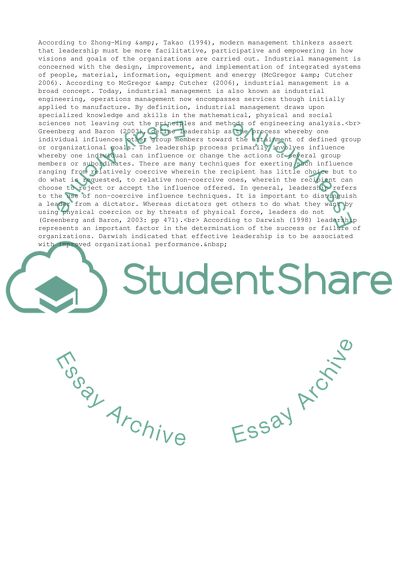Cite this document
(“The Role of a Modern Industrial Manager Essay Example | Topics and Well Written Essays - 2000 words”, n.d.)
The Role of a Modern Industrial Manager Essay Example | Topics and Well Written Essays - 2000 words. Retrieved from https://studentshare.org/business/1511384-the-role-of-a-modern-industrial-manager-essay
The Role of a Modern Industrial Manager Essay Example | Topics and Well Written Essays - 2000 words. Retrieved from https://studentshare.org/business/1511384-the-role-of-a-modern-industrial-manager-essay
(The Role of a Modern Industrial Manager Essay Example | Topics and Well Written Essays - 2000 Words)
The Role of a Modern Industrial Manager Essay Example | Topics and Well Written Essays - 2000 Words. https://studentshare.org/business/1511384-the-role-of-a-modern-industrial-manager-essay.
The Role of a Modern Industrial Manager Essay Example | Topics and Well Written Essays - 2000 Words. https://studentshare.org/business/1511384-the-role-of-a-modern-industrial-manager-essay.
“The Role of a Modern Industrial Manager Essay Example | Topics and Well Written Essays - 2000 Words”, n.d. https://studentshare.org/business/1511384-the-role-of-a-modern-industrial-manager-essay.


